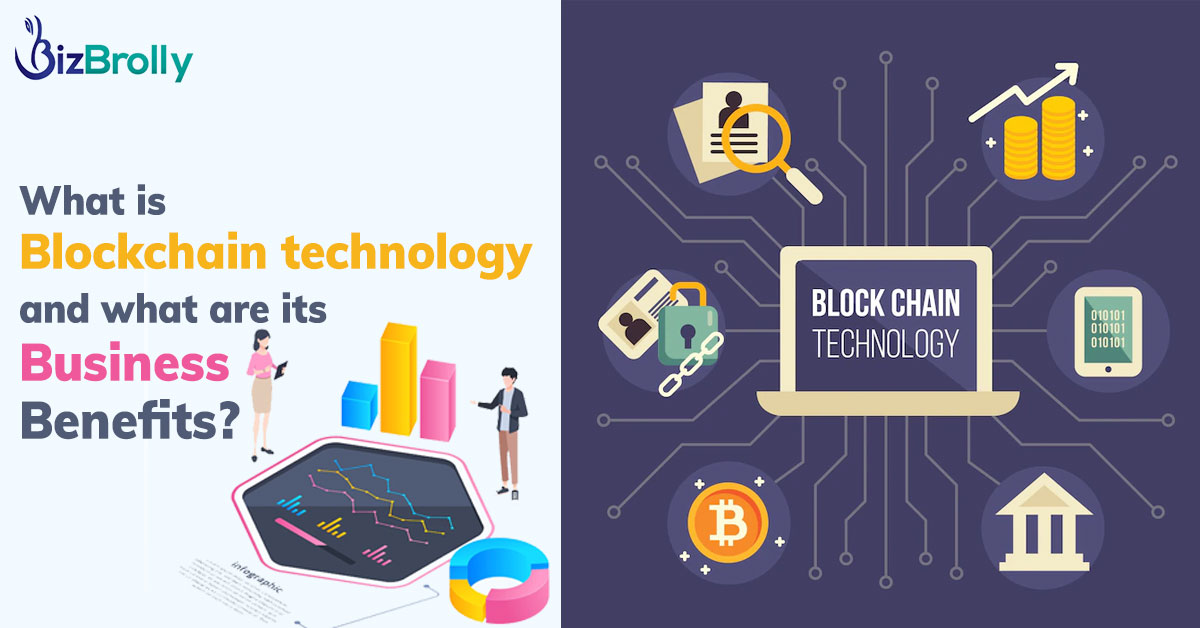
Blockchain is a decentralized distributed ledger that securely and encrypts records transactions. They are transparent, unchangeable, and irreversible. It works as a distributed database that is controlled by computers connected in a peer-to-peer network. A ledger copy on each computer easily prevents a single point of failure (SPOF). Additionally, each transaction is simultaneously updated and validated.
As a result, it is becoming more popular across a range of sectors, including financial services, cross-border payments, supply chain logistics, and management.
Almost every company is eager to integrate blockchain technology into their business plans. The primary motivation is to enjoy significant cost savings while gaining benefits like security, immutability, decentralization, and transparency.
The information is not kept in a single location. Each member of the network is the owner of the data, has access to previous information, and can approve new transactions.
A peer-to-peer network exists. The parties involved in the transactions agree on the transactions, and the transactions are announced. It is dependable and practical.
Digital and automated transactions are used. The business organization can reduce paper-based transactions and streamline operations more easily.
Consensus protocols are used by blockchain to automatically record data and validate transactions. Since there is no centralized authority, the system is more equitable and regarded as secure.
Because blockchain transactions don’t require middlemen, they can be completed more quickly. By automating operational processes in a secure and stable environment, it eliminates redundant steps.
A custom blockchain network can be built according to business logic, even though blockchain is a distributed ledger with an immutable chain of data. Depending on the situation, it can be used in many different business sectors.
Because of its digital signature and encryption, blockchain is very secure. It is practical, tamper-proof, and unchangeable. The information is protected from hackers and kept in several locations.
Tell us about business applications for blockchain.
The real benefits of blockchain are being experienced by industries like banking, healthcare, education, logistics, media and entertainment, automotive, retail, and e-commerce, among others. Several blockchain applications in the industry include:
Smart contracts satisfy the conditions of a quantifiable legal contract and validate conditions. By doing away with middlemen, it makes it possible for agreements to be secure, economical, and self-executing in accordance with the business case.
It is used for many things, including trading stocks, registering land titles, storing documents, purchasing and selling renewable energy from local microgrids, supply chain auditing, and banking reconciliation.
The parties can communicate directly for business purposes thanks to the peer-to-peer network. Peer-to-peer transactions decrease intermediary and covert costs while enhancing a company’s credibility.
Investors are drawn to blockchain-powered crowdfunding because it allows them to assess projects and make direct investments. Financial instruments such as Initial Exchange Offering (IEO), Security Token Offering (STO), and Initial Coin Offering (ICO) can be used by businesses to raise capital (IEO).
An organization’s governance can be made transparent and auditable. Due to the transparency and accessibility of the results, this promotes intelligent decision-making.
Copyright is protected by smart contracts, which also streamline online art sales. It eliminates the danger of copying and distributing files.
The blockchain-based IoT solutions improve connectivity and customer experience, which streamlines business processes. It is evolving into a trusted, efficient, and reliable business process.
Real-time self-sovereign identity creation is made possible by blockchain identity management. It guards against identity theft, lessens fraud, and deals with issues relating to authentication and reconciliation.
The information can be quickly and effectively obtained, processed, and verified using distributed ledger technology (DLT), which also protects the data from hacking and ensures that it complies with anti-money laundering and know-your-customer (KYC) regulations.
Using blockchain technology, data security, integrity, and transparency can be managed. Data is verified, traceable, shared, and secure because a chain of transactions is created using cryptography and hashing.
Now, you know the benefits of blockchain and its applications in business. To learn more and implement blockchain technology in your industry, contact a premium business intelligence services company. It is a certification that validates your skill and gives you a competitive edge in the field.